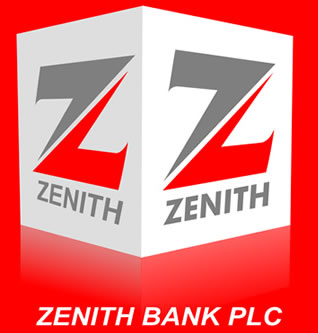Zenith Bank to raise N100 billion from capital market

Following the release of Zenith Bank’s full year results on Monday, reports reaching Daily Times, discloses the lender seeks additional N100 billion from the capital market if approved by its shareholders.
According to the report from Reuters, “Zenith Bank said on Tuesday it would seek shareholder approval next month to raise N100 billion via a combination of share or bond sale and global depository receipts.
The lender also said it would seek approval to increase its share capital to N40 billion from N20 billion at the shareholders’ meeting on March 22.”
Inquisitions put forward to the communications management of the bank through phone calls and text messages on the authenticity of the report and on what the funds will be used for however proved abortive.
Zenith Bank had reported a profit after tax of N129.7 billion for its full year ended 31st December 2016, via the Nigerian Stock Exchange on Monday.
The profit was 22.7 percent higher than N105.7 billion made in the same period of 2015.
The bank’s management in reaction to the disclosed full year financials stated: “The performance for the year ended December 31, 2016 re-affirms Zenith’s industry leadership and consistency in providing superior financial returns.
This is demonstrated by the 25% and 23% growth in Profit before Tax (PBT) and Profit After Tax (PAT) respectively despite the continuously challenging macro-economic backdrop.
The N157 billion PBT and N130 billion PAT reported in the current year resulted in an impressive return on average equity of 20% compared to 18% in the prior year.
The Group reported gross revenues of N507.9 billion representing an increase of 17.4% over the same period in 2015. Furthermore, the results for the year shows an increase of 10.4% and 45.9% (Y-o-Y) in interest income and non-interest income respectively.
The impressive growth of non-interest income is primarily attributable to the banks electronic products delivery, retail drive and derivatives income.
The increased focus on retail drive resulted in a 46% Y-o-Y growth in savings deposits. The cost control initiatives embarked by the Group continue to yield positive results with an 8% reduction in cost to income ratio to close at 53% for the year ended December, 31 2016.
While the year-end 2016 inflation rate was 18.55%, the Group was able to keep its absolute operating expenses relatively flat moving by 4% from N167.9 billion to N174.5 billion Interest expense, however, increased by 16.8% (Y-o-Y) mainly due to a 92% increase in cost of borrowed funds which was is largely driven by the movements in the exchange rate.
The loans and advances of the Group grew by 16% Y-o-Y to close at N2.3 trillion as at 31 December, 2016; mainly due to the devaluation of the Naira.
In spite of a competitive and challenging operating environment, management’s outlook is very positive barring any unpleasant shock.
Furthermore, the Group will continue its focus on cost control and emerging opportunities in the growth and economic recovery agenda of the Federal Government. “The bank’s statement read







